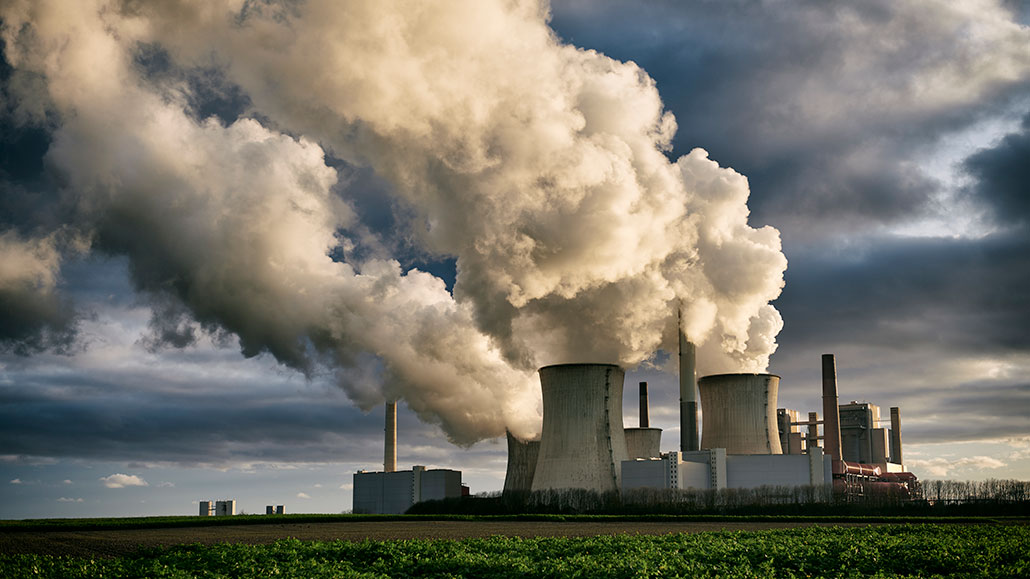The ongoing global energy transformation has brought the debate between solar energy and fossil fuels to the forefront.
Solar energy, harnessed from the sun's abundant and renewable light, presents a clean and sustainable alternative to traditional fossil fuel reliance.
As society confronts the pressing issue of climate change and the imperative to adopt environmentally friendly energy solutions, the comparison between solar energy and fossil fuels becomes paramount.
In this exploration, we will examine the fundamental distinctions, advantages, and obstacles linked to these energy sources, providing insights into their environmental, economic, and long-term sustainability implications.
What Are Fossil Fuels And What Impact Do They Have?

Damaging fossil fuels like oil, coal, and natural gas have historically served as the primary sources of global energy.
However, their widespread utilization and combustion have significant implications for the environment.
When examining the environmental damage caused by fossil fuels, we must consider three crucial factors: carbon dioxide (CO2) emissions, air pollution, and ecological impact.
CO2 Emissions
Burning fossil fuels releases substantial amounts of carbon dioxide into the atmosphere. CO2 is a greenhouse gas that worsens climate change and global warming.
Among these fuels, coal stands out as the most carbon-intensive, emitting the highest levels of CO2 per unit of energy produced. While oil and natural gas are relatively less carbon-intensive, they still contribute to CO2 emissions.
Air Pollution
The combustion of fossil fuels also results in the emission of harmful air pollutants, including sulfur dioxide (SO2), nitrogen oxides (NOx), and particulate matter (PM).
These pollutants have detrimental effects on both human health and the environment.
Coal combustion, in particular, is a major source of sulfur dioxide emissions, leading to issues such as acid rain and respiratory problems.
Oil and natural gas combustion also release nitrogen oxides and particulate matter, albeit to a lesser extent than coal.
Ecological Impact
The extraction and utilization of fossil fuels can have severe ecological consequences. Coal mining, for example, often involves practices like mountaintop removal and strip mining, which disrupt ecosystems, destroy habitats, and contaminate nearby water sources.
Oil extraction poses risks such as oil spills, which can devastate marine ecosystems and harm wildlife.
Moreover, the process of hydraulic fracturing, known as fracking, used for natural gas extraction, has been associated with groundwater contamination and the potential release of methane—a potent greenhouse gas—into the atmosphere.
Why Are Fossil Fuels Used More Often Than Solar Energy?

The extensive use of fossil fuels, despite their harmful effects on the environment, can be attributed to several reasons. Let's explore these factors in more detail:
Energy Density and Convenience
Fossil fuels have a high energy density, meaning they contain a lot of energy in a small volume or weight.
This characteristic makes them efficient for storage and transportation, which is convenient for various applications.
For example, gasoline and diesel derived from oil have high energy densities, allowing for long-distance transportation and powering vehicles, which has been crucial for global economic growth and mobility.
Established Infrastructure
The infrastructure for extracting, refining, and distributing fossil fuels is already well-established and extensive.
Over time, significant investments have been made in this infrastructure, including refineries, pipelines, and power plants.
This existing infrastructure makes it easier to continue relying on fossil fuels rather than switching to alternative energy sources, as a complete overhaul of the infrastructure would be costly and time-consuming.
Economic Considerations
Fossil fuel industries play a significant role in economies worldwide. They provide employment opportunities, contribute to government revenue through taxes and royalties, and support various sectors like manufacturing and transportation.
The economic reliance on fossil fuels, both domestically and globally, has made it challenging to transition away from them quickly.
Shifting to alternative energy sources requires substantial investments and careful planning to ensure economic stability and a fair transition for communities affected by the changes.
Energy Reliability and Availability
Fossil fuels have been reliable and easily accessible sources of energy for many years.
Unlike clean energy sources such as solar and wind, which are intermittent and dependent on weather conditions, fossil fuels can provide a consistent and stable energy supply.
This reliability is crucial for industries, businesses, and infrastructure that require continuous access to energy.
Technological Challenges
Although significant progress has been made in the development and deployment of alternative energy technologies like solar, wind, and geothermal power, there are still challenges to overcome.
Storage technologies for intermittent renewable energy sources are improving but have not yet reached the same level as the storage capacity of fossil fuels.
Additionally, managing the intermittent nature of renewable sources requires a robust and smart grid infrastructure to effectively balance supply and demand.
Transitioning Complexities
Shifting from fossil fuels to cleaner alternatives involves complex considerations.
It requires substantial investments in research and development, policy changes, and the integration of new energy systems into existing infrastructure.
The transition also involves addressing challenges related to energy storage, grid stability, and the development of sustainable transportation solutions.
Achieving a balance between meeting the energy needs of growing populations and minimizing environmental impacts is a multifaceted challenge.
Despite the damaging environmental consequences, the continued use of fossil fuels stems from a combination of factors such as their energy density, established infrastructure, economic considerations, energy reliability, technological challenges, and the complexities associated with transitioning to alternative energy sources.
Addressing these challenges requires collaborative efforts from governments, industries, and individuals to promote sustainable and cleaner energy systems.
Solar Energy Vs Fossil Fuels, Which Is Better?

When comparing solar energy to fossil fuels, several factors should be considered to determine which option is better.
Here are some important points for you to consider:
Environmental
Solar energy is a renewable source that doesn't release greenhouse gas emissions during operation.
On the other hand, burning fossil fuels emits carbon dioxide and other pollutants, contributing to air pollution, climate change, and environmental degradation.
From an environmental perspective, solar energy is considered superior to fossil fuels.
Resource Availability and Sustainability
Fossil fuels are finite resources that require extraction from the Earth's crust. As their reserves diminish over time, accessing fossil fuels becomes more difficult and expensive.
In contrast, solar energy is derived from sunlight, which is abundant and freely available. It offers a sustainable and virtually limitless energy source as long as the sun continues to shine.
Energy Efficiency
Solar energy conversion efficiency has improved over the years, but there are still limitations. Solar panels typically convert sunlight into electricity with efficiencies ranging from 15% to 20%.
In comparison, fossil fuel power plants can achieve higher energy conversion efficiencies.
However, it's important to consider the overall efficiency by factoring in the energy required for fossil fuel extraction, processing, and transportation, which reduces their net efficiency.
Cost
The cost of solar has been decreasing dramatically due to technological advancements, economies of scale, and government incentives.
As a result, solar energy has become increasingly competitive with fossil fuels in many regions. In some cases, solar energy has already reached grid parity, meaning its cost is equal to or lower than that of electricity generated from fossil fuels.
Additionally, solar energy has no fuel costs once the infrastructure is in place, while fossil fuel prices can be volatile and influenced by geopolitical factors.
Energy Storage
One advantage of fossil fuels is their ability to store energy easily, allowing for convenient storage and transportation.
However, advancements in energy storage technologies, such as batteries, are improving the storage capabilities of solar energy systems.
These technologies enable solar energy to provide more consistent and reliable power, reducing the intermittency issue associated with renewable energy sources.
Employment Opportunities and Economic Impact
Transitioning from fossil fuels to renewable energy, like solar energy, has the potential to create new job opportunities in industries such as manufacturing, installation, and maintenance of solar panels.
Additionally, investing in renewable energy can stimulate economic growth and reduce dependence on fossil fuel imports, promoting energy independence.
Final Thoughts
The choice between solar energy and fossil fuels has significant implications for our planet and future generations.
Solar energy provides a compelling solution to combat climate change and environmental degradation with its renewable nature, minimal environmental impact, and decreasing costs.
Fossil fuels, while efficient in energy conversion, have drawbacks such as greenhouse gas emissions, resource depletion, and economic volatility.
Collaboration among governments, industries, and individuals is crucial as we navigate the complexities of transitioning to a sustainable energy system.






































































